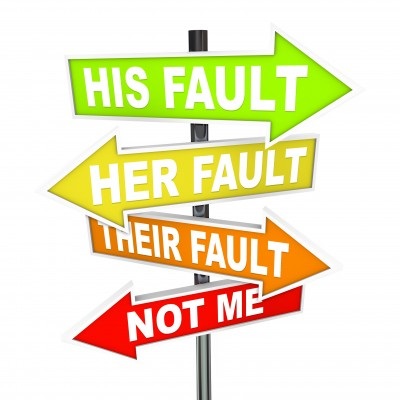Is your pain too great?  Who gets to say if it’s too big, too small, or just right? When trauma strikes, make no mistake, you will feel the pain of it. You may sense that you are being judged on the level of pain that you feel, in fact, I’m sure that you are. So here are a few tips to keep in mind when you are in pain. . .
Who gets to say if it’s too big, too small, or just right? When trauma strikes, make no mistake, you will feel the pain of it. You may sense that you are being judged on the level of pain that you feel, in fact, I’m sure that you are. So here are a few tips to keep in mind when you are in pain. . .
VALIDATE FOR YOURSELF . . .The pain that you feel is going to impact those around you. . . spouses, children, parents, siblings, friends, coworkers, you name it. And not everyone is comfortable around high levels of pain, so they may attempt to regulate your pain for you by convincing you that you should be in less pain. And if they are the one who hurt you, they probably are motivated to lessen your pain because it minimizes their pain! But you get to decide for yourself how much pain you get to be in. It hurts. Period. Nobody gets to tell you that it doesn’t or it shouldn’t hurt. Learn how to validate your own pain, instead of looking to everyone else’s reactions to tell you how much pain is appropriate.
 ASSIGN APPROPRIATE RESPONSIBILITY . . . This part is hard. If you are feeling extreme pain, some of it may not really be due to what is happening to you right now. When we have had past hurts at the hands of our caregivers (and we all have in some form or another), sometimes the wound we are currently experiencing is ‘right where it hurts’. So imagine you had a broken leg as a child that had to be surgically repaired and you still ache or limp a little from that injury. Now imagine someone comes up and kicks you in the leg in that exact same spot. It’s going to hurt more than if you had never had an injury in that area. Is the person responsible for kicking you? Of course they are. Was it ok for them to kick you? Of course not. On a scale of 1 – 10, however, a person that had no prior injury will likely feel pain at a 3 or a 4 level vs. someone who had prior trauma in that area might feel pain at an 8 or a 9. The pain is excruciating, yes, but the pain is not 100% due to the person who kicked them (even though you still get to be upset with them for kicking you!). So keep in mind that even though you felt great pain that they inflicted, it may not all be due to the other person.
ASSIGN APPROPRIATE RESPONSIBILITY . . . This part is hard. If you are feeling extreme pain, some of it may not really be due to what is happening to you right now. When we have had past hurts at the hands of our caregivers (and we all have in some form or another), sometimes the wound we are currently experiencing is ‘right where it hurts’. So imagine you had a broken leg as a child that had to be surgically repaired and you still ache or limp a little from that injury. Now imagine someone comes up and kicks you in the leg in that exact same spot. It’s going to hurt more than if you had never had an injury in that area. Is the person responsible for kicking you? Of course they are. Was it ok for them to kick you? Of course not. On a scale of 1 – 10, however, a person that had no prior injury will likely feel pain at a 3 or a 4 level vs. someone who had prior trauma in that area might feel pain at an 8 or a 9. The pain is excruciating, yes, but the pain is not 100% due to the person who kicked them (even though you still get to be upset with them for kicking you!). So keep in mind that even though you felt great pain that they inflicted, it may not all be due to the other person.
CONSIDER YOUR PAIN TOLERANCE . . . Much like physical pain, we all have different tolerance for emotional pain. Some of us are extra sensitive and the tiniest hint of pain will stop us in our tracks and make us feel like we can’t get through the day.  Others of us have an incredibly high tolerance for pain and work through it like a WWII hero. Be honest with yourself about your emotional pain tolerance. It probably aligns with your physical pain tolerance. You may be feeling pain at an intensity that is too high for the circumstances and/or attributing too much of your pain to the circumstances. Likewise, you might feel too little pain, like a Timex that ‘takes a licking but keeps on ticking’ and gets you used and abused in relationships.
Others of us have an incredibly high tolerance for pain and work through it like a WWII hero. Be honest with yourself about your emotional pain tolerance. It probably aligns with your physical pain tolerance. You may be feeling pain at an intensity that is too high for the circumstances and/or attributing too much of your pain to the circumstances. Likewise, you might feel too little pain, like a Timex that ‘takes a licking but keeps on ticking’ and gets you used and abused in relationships.
If you are in pain, I encourage you to find someone you trust to help you see things clearly. Learning how to validate your own pain, assigning appropriate responsibility, and knowing your own pain tolerance will help you feel better faster by finding a healthy balance and targeting the focus of your grieving properly!

Our Blog